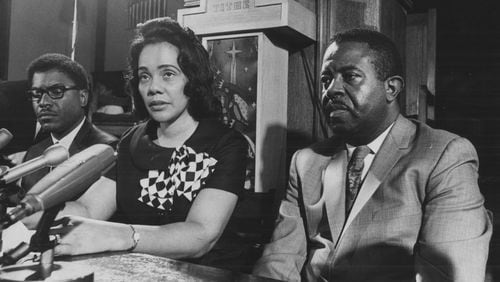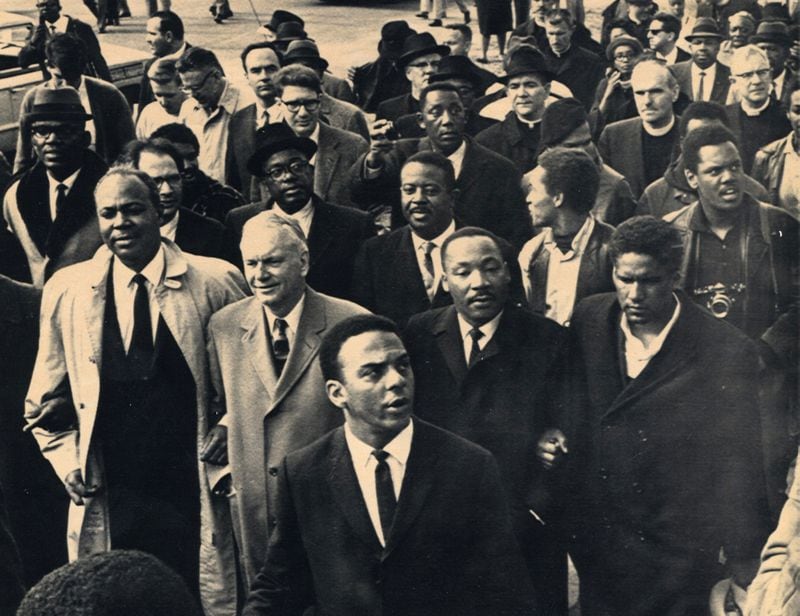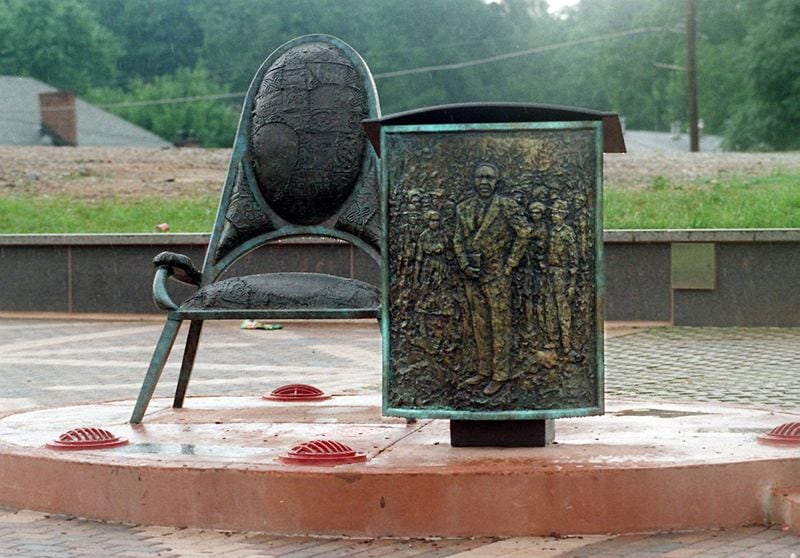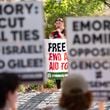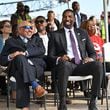Abernathy is a name many Atlanta residents are familiar with, even if some are not quite sure why. The name can be found on city streets, notable buildings and on the tip of the tongues of local civic leaders.
From Montgomery, Alabama, to Atlanta, Dr. Ralph David Abernathy rallied community leaders as a close friend and co-strategist to Dr. Martin Luther King, Jr. The two led the Montgomery Bus Boycott from 1955 to 1956, as well as the Southern Christian Leadership Conference campaigns that brought down systems of segregation across the nation.
In short, he’s a civil rights icon with strong southern roots.
Credit: File
Credit: File
Founded in Atlanta after Abernathy’s home and church were bombed, the Southern Christian Leadership Conference successfully staged a 381-day boycott of the Montgomery, Alabama’s segregated bus system. But the work didn’t end there. The organization later worked to organize and coordinate civil rights protests across the South.
After Dr. King’s assassination in 1968, Abernathy continued to lead the SCLC, now as its president, and to pastor Atlanta’s West Hunter Street Baptist Church. According to Stanford’s Martin Luther King, Jr. Research and Education Institute, King’s death led the civil rights icon to pray for strength.
“To prepare for the challenges ahead, he fasted for seven days and nights, telling the New York Post that he ‘needed to pray and fast for strength that I might carry on as he requested, and as the board of directors of SCLC unanimously requested, in nonviolence. I want to hold no ill will in my heart toward the assassin or anyone else for taking the life of my dearest friend, closer to me than a blood brother.’”
Credit: Frank Niemeir
Credit: Frank Niemeir
Abernathy went on to lead the march King was organizing for Memphis sanitation workers at the time of his death. He later led the Poor People’s Campaign in Washington, D.C., alongside Coretta Scott King, and formed the Foundation for Economic Enterprises Development.
About the Author
